Join Connor Bearse and Jake Dieball for a brief update on how our escape room ads performed in December. Then, our thoughts on the rollout of Google Analytics 4 and how it’s going impact the escape room industry.
Transcript
Connor Bearse: [00:00:00] Welcome to Birch Banter. Happy New Year everybody on today's show, a brief update on how our Escape room ads performed in December, and then some thoughts on the rollout of Google Analytics four, and how it's gonna impact the escape room industry. I'm Connor Bearse, and I'm joined by Jake Dieball today, our senior ad specialist, but first Birch Banter is brought to you by US! Birch River Design Group!
We are experts in escape room marketing and we focus on money in money out. Generating trackable large returns for escape rooms is our thing. Sound too good to be true? No worries. Because we financially guarantee our results. If you don't earn at lease $5 for every $1 you put into your ad campaign, by the end of the second month, we refund our fee and all the ad money you spent. Reach out today.
Alright, Jake, how did our Escape Room ads do last month?
Jake Dieball: Hey Connor, thanks for having me on. The week after Christmas, we tend to see some of the best weeks for escape room marketing that we do all year with return [00:01:00] on ad spend going up as high as 15-16x that week, our conversions end up doubling or tripling because there's so much more demand out there.
Connor Bearse: Was that on Google or Facebook?
Jake Dieball: This is all Google ads. Oh wow. Okay, cool. So far. So as I was saying, you know, we, we do tend to see spend increase during that week. We see less demand in the lead up to Christmas. Nobody is too busy worrying about the activities that they're gonna be doing until Christmas is over.
A lot of people are more focused on wrapping up their presents, planning their family dinner, getting relatives into town or traveling. But as soon as that Christmas rush ends we do see a heavy increase in demand for escape room ads, which is great for both escape rooms and us as the ad managers.
Connor Bearse: were the click through rates on the ads higher or lower than in November.
Jake Dieball: Overall, we were about the same as November. Our Escape room ads are averaging about a 12% click-through rate overall amongst all of our clients, which is phenomenal for this market.
Connor Bearse: And that includes all the holidays between, you know, in November we had Thanksgiving, and then obviously in December we had all the Christmas stuff going on so that 12% clickthrough rate includes all the peaks and valleys through those holidays.
Jake Dieball: Correct. That's an average over all the holidays, non-holiday weeks and everything like that.
Connor Bearse: What was the cost per booking on Google for those months?
Jake Dieball: Our average cost per booking on Google was around $14 to $15, depending on the client and the population that they operate in. Typically we do see those costs per bookings around $18 to $20. So we were a little bit above average in terms of our cost per booking.
Connor Bearse:
So the demand in December really brought those costs per bookings down. But the average booking is north of a hundred dollars, right? I mean, I think across the board it's around $140 for our clients. Does that line up?
Jake Dieball: That lines up. Across the board to us, it feels like our clients are making at least $120 per booking on average.
Connor Bearse: Yeah. And that depends on location, of course. Our California escape rooms run a little more expensive than some of our other ones, for sure.
So I know you've been talking about Google and that sounds like December was working really well. How was Facebook doing in December?
Jake Dieball: Facebook did fantastic in December.
We run two different types of ads on Facebook for our escape room clients. We run conversion based ads and we run remarketing ads. The conversion based are kind of targeted towards new people who haven't been to the escape room yet, trying to get them in and get them a booking. Versus remarketing, obviously getting people who have already visited the website or at least have had one point of contact with that business before - to make a booking and get into the business.
For the remarketing, we tend to see bookings at about $8 to $9 per, which is absolutely fantastic. We, you know, obviously a lot cheaper than our Google Ads efforts. For our conversion-based campaigns. We're tending to see bookings a little bit higher than what we do for Google Ads. [00:04:00] This number's gonna be around $25 to $30 per booking.
But the returns that we see from these campaigns are great. Our average booking is gonna be around $120 to $150 per, so the return on ad spend that we're getting from both these campaigns is phenomenal, especially the remarketing campaigns. The remarketing campaigns in general, we're seeing about a 15x to 20x return on ad spend for which is, a no-brainer for Escaper owners to participate in.
Connor Bearse: And I know we're talking about Facebook, but I, I believe these campaigns include Instagram and Facebook, right? All the new Meta properties, right? Yep, that's correct. Gotcha. And there's obviously been a lot of talk about Facebook and Instagram and meta. The stock prices way down. I think overall sentiment on those platforms is fairly low.
Do you feel like ad spends going to be shifted away from those properties? Are we seeing things slow down? Despite what maybe the cultural conversation, is that still the platform to be on [00:05:00] heading into 2023?
Jake Dieball: I absolutely believe so. With the results that we've been seeing over the past couple of months on these platforms, to me it's a no-brainer to be shoveling some ad spend in that direction.
Connor Bearse: Yeah. Especially since we have the trackable revenue coming in, it's not like we're just throwing money at Meta Facebook and Instagram. Like we actually get to see the revenue coming out. So that definitely gives us some peace of mind advertising there. I think a lot of the cultural issues people are having with it from the business side, not just the social side, right,
Is that Facebook pages and Instagram pages, if you just post organically reach is really low. Like sub 1% 0.5% of your followers are gonna see it. Which I think, you know, a lot of business owners look and go, oh my gosh, that's not working that well. But it really comes down to they're selling you the audience.
That's why I think these ads are still working, is that if you pay them, you're gonna get to their audience or to their user base still. I think that's something that has been brought up with [00:06:00] our clients quite a bit is, you know, why is our Instagram or Facebook page not working? But ads are working so well.
That's cool to hear that the ads, that you still have a lot of positivity on the ad side as we head in because Yeah, the returns I've seen this last year from our accounts are just crazy honestly on meta Facebook and Instagram.
Jake Dieball: Yeah, absolutely. From what we've seen, there's no reason to start slowing down spend.
If anything, I've kind of been encouraging our clients to start slowly increasing ad spend which, you know, I do as the ad manager. When we are seeing such strong results come in from any platform, whether it be Google or Meta. We slowly increase the ad spend and watch the results to make sure that we don't zoom past the point of diminishing returns, which does naturally occur on every platform.
You can't expect to go in and spend $500 a day and see the same results as spending $50 a day in specific industries, markets. There's definitely a cap on what we could do and what we can expect in return. So, like I was saying, I do encourage business owners to slowly increase their ad [00:07:00] spend until we start seeing that we're getting close to that point, just so we're able to make the most possible revenue from these platforms as possible.
Connor Bearse: Yeah. It doesn't seem like we're quite there at the point of diminishing returns yet. I think maybe two years ago, we really, we liked Google ads over Facebook and Instagram ads for a little bit and what was it, maybe June of this last year where we're like, whoa, these are, these results are getting a little bit better.
And we've been slowly ticking it up. And now we're in January, 2023. And it doesn't seem like we're at that point of diminishing returns yet, which is pretty cool to see.
Jake Dieball: Yeah absolutely. So for our clients pushing forward and trying to find that sweet spot of how much can we spend and still see these returns of 14, 15, 16 x return on ad spend...
Connor Bearse: Yeah I've seen some reports coming out with well over 20x for every dollar we put into some of these campaigns, we got over $20 out. I know that wasn't average, but I saw quite a few of them come above that.
Jake Dieball: Yeah, absolutely. We [00:08:00] certainly have had weeks, multiple weeks for some of our clients, where on Facebook, between our remarketing campaigns and our conversion based campaigns that we're seeing up to 28, 29x return on ad spend. It's not specifically an anomaly for us anymore. These weeks do happen.
Connor Bearse: That is awesome. So overall, we've really been focusing on Google Ads and then the meta paid ads, which is Facebook and Instagram as our primary paid media for escape rooms in the last couple months.
Jake Dieball: What I'm most excited about for 2023 is we've been growing as an agency, which gives us more escape rooms, more data on all these ads, so we can really systemize even further than we already have what we've been doing with these platforms. With access to more data, we should be able to continue to improve our escape room marketing system through Google Ads, through meta.
To start driving some really, really impressive results for our clients.
Connor Bearse: Totally agree. Yeah, it, it's been an [00:09:00] awesome year.
Moving on to our next topic. Google Analytics is going to be sunsetting their most widely used version in July of this year. That is Google Analytics UA. Sometimes people call it Google Analytics three,
but the official name is Universal Analytics. What's replacing it is Google Analytics Four. It's causing a little bit of turmoil in most small businesses, specifically the escape room industry because Google Analytics four is not a one-to-one replacement for Google Analytics UA. It has a much different philosophy behind it.
When small business owners open it up, the data quite doesn't look the same. In fact, I think the reports that people most wanna see which is just, "Hey, how many people are on my website?" It's really kind of buried. Now, if you wanna just see, "Hey, how many people viewed my booking page?" It's pretty buried down into Google Analytics four, [00:10:00] and we've definitively been feeling some frustration from escape from owners as they look at it.
And then they go back to what they know and love of GA three or GA UA. And then there's just that big banner at the top saying, Hey, you know, this is literally going to turn off in a couple months, so please get off it. It affects the escape room industry even more than a lot of other industries because of how much reliance on third party booking systems there are in the escape room industry.
Resova, Bookeo, Xola, FareHarbor. These are third party tools that send data to our ads platforms or Google Analytics. And to be perfectly frank, none of them are really set up for Google Analytics four quite yet, and the clock is ticking really fast. We're less than seven months away from the old version shutting off.
You can set up your revenue tracking and ads and all your analytics very manually through a lot of this, so that way this transition doesn't hurt you too much. But I'd say the [00:11:00] majority of our escape rooms, when we onboarded them, we're 100% relying on the old version of Google Analytics. For any kind of ad spend tracking.
If escape room owners don't move away from this properly, they might not be able to track their ad spend. They might not be able to get data on what's, you know, what channels - Is it Facebook? Is it Yelp is earning the money? Like this could be a pretty catastrophic cliff for the escape room industry. So with all that being said about this cliff coming and potential issues about the hit the escape room industry I'm really interested in what these industry standard booking systems are gonna do over the next couple months.
We've been working really close with Resova to get their booking system updated, so that way it works really well with Google Analytics four, but it's still probably at best a month or two away is my guess. This is gonna be something to really to watch. I'm excited to [00:12:00] tackle. I've actually reached out to Bookeo and Xola to see if we could help them get their GA four set up, because I know it's gonna be catastrophic for our clients on those platforms right now.
This is definitely, I think, something that needs to be said. That's why I wanted to bring it up in January here during this conversation. And I think it's just an unfinished story. Now, my recommendation though, if you're an escape room owner listening to it, is to at least get it on your website, at least do the upgrade path or plug the code in somewhere on your website and start getting some data.
Because if these booking systems do update and they start sending the data, at least you'll be ready to catch it. . And then on the flip side is as we start approaching this deadline and you reach out to someone like us to get you fixed up with GA four. Then at least we have some historical data. We won't be starting from scratch.
And then when you have some data in there, we can kind of show you or you can go on YouTube and find a tutorial and you can start learning kind of the new philosophy behind Google Analytics four. Like I mentioned in the beginning there's some pretty common reports that are [00:13:00] buried extremely deep into Google Analytics four, and it just, it feels confusing.
My advice right now, while we're kind of in the no man's land of Google Analytics four is to get it on there at the very least, get some data going. And then from that data really embrace the new model of thinking that Google Analytics four is bringing to the table because it is really good marketing theory that they're bringing to the table.
The old Google Analytics didn't really tell you anything to be perfectly honest. You had to go in there looking for something you want to learn. While, Google Analytics four is a lot more opinionated. It's really broken down into acquisition, engagement, how are people on your website, and then how do they spend money on your website?
It really tells a very opinionated story on how people are coming in, how people are using your website, and how they're booking. And that is the future of marketing. It is a lot. We're in no man's land. It's gonna be kind of crazy and it's gonna be frankly catastrophic for escape rooms [00:14:00] who don't act before July if they rely on this at all.
But I think at the end of the day, Google Analytics four is going to be a huge upgrade for not just the Escape room industry, but any business utilizing Google Analytics. I also think it's going to flush out a lot of people who claim they know what Google Analytics is. And we're just relying on kind of that, that dump of data you get from the old Google Analytics.
We'll see the people who really know how to do marketing with great data. Stay in the industry while a lot of like lesser agencies and other people who claim they can get, get flushed out. For sure.
Jake Dieball: Well, it sounds like there's an optimistic future in store for Google Analytics Four. Let me ask you this, with Google Analytics four, how is that gonna affect what we do with Google Ads in terms of optimizing for more conversions and better performance?
Connor Bearse: Yeah, I see. I'm glad you asked that because I kind of touched on new opinionated marketing theory that Google Analytics four brings to the table that is definitively [00:15:00] what we need to be doing right now. But because of the old technology with GA three or GA UA we haven't been able to do it exceptionally well.
So the idea is with Google Analytics four, there's a big emphasis on engagement for your website, not just someone visiting your website. They really de-emphasize a page view, because if someone goes to your website, it's gonna count as a page view. But it doesn't mean anything at the end of the day. Because, we've seen it before, you can buy page views, you could have a bunch of friends go to the page - to your escape room page, or you know, a social media network or Reddit could post it and you get a big spike of traffic. Well, if 99% of those people don't do anything on your website, That is actually just ruining your data and it's kind of hard. Like all of a sudden you're looking at the years' data of visitors to your website and then you just gotta look at that spike and kind of remember, oh yeah, no, that wasn't, that wasn't good. That didn't do anything for us.
[00:16:00] So the opinionation that Google Analytics four brings to the table is, Hey, we're gonna focus on the engagement of your website. You'll still be able to see if people went to your website, that's fine, but did someone go to your website and did they click through? Did they scroll?
Did they interact with it somehow? Because if they land on your website and they see it and they go, oh, this isn't where I want to be, and they leave. Good. That's not what we wanna focus on. But if we see someone engage with your website, that person's going, okay, I'm on an escape room website.
Okay, cool, like let's take a look at the rooms. Now they're engaging... and then they don't check out. Oh, okay, that person engaged with your website, but they didn't check out. That can tell us, okay those people tell us something. Where can we optimize on your website or, and this is answering your question more specifically...
We can tell Google Analytics four, to build an audience of people who visited the website, did something specific, like engaging, and we can create [00:17:00] all sorts of technical audiences, and then send that back to Google Ads and then remarket to those people. Now, historically, if you don't do it perfectly right, and it's a little bit harder, but you can protect against this right now, is that, let's say Reddit does pick up your escape from website, you get, you know, 50,000 hits in one day and then Google ads goes, let's start remarketing to everyone who just hit the website. Well, that's not super helpful because chances are they're not gonna be in your geographic region. So now that whole remarketing audience is going to just consistently get filtered out.
Google's machine learning is gonna get a little frustrated cause they're going, whoa, what's up with all this random people showing up in your audience? This isn't your market. Or maybe it is, Google is gonna start trying to figure out what the average of that audience is, when it's actually just dirty data.
So now with an emphasis on engagement in the tools, Google Analytics four brings to the table. We can build those. Hey, only look at people who are engaging with your website, reading [00:18:00] your blogs, looking at your rooms. Send that back, and now that audiences get cleaner, the remarketing gets better, and then the data gets even clearer for you to make better decisions off of it.
So again, full circle, it helps not only the business decisions for an escape room owner, but it also helps you, Jake, I get to build that audience and you get to run better ads and then your numbers get to go up.
Jake Dieball: Yeah, and obviously we've been using Google Analytics four, for quite some time for a couple of our escape rooms.
It, it was rolled out, what was it, about a year or so ago?
Connor Bearse: A little bit more, but there's been so many versions of it that it's been hard to really nail down what, when it actually got released for what we are seeing today, to be honest.
Jake Dieball: Sure. Well, with you know, the results of actually having used this with some of our Escape room clients so far...
I think it speaks to everything that you just said. Having this implemented and properly set up can be such a crucial [00:19:00] tactic to this whole entire escape room marketing funnel. So I'm really looking forward to the continued implementations of Google Analytics four and, and seeing how it develops as you know, we move on down 2023 and how it's gonna affect us as marketers for these escape rooms.
Connor Bearse: Yeah, a hundred percent. And I love that you brought up the funnel too, because you know, ads are not just getting people click through on Google, right, or Facebook. And that's another thing GA four really brings to the table is that we get to see, you know, from the time someone engages with the website to the time they check out... what's the dropout, what's the dropoff rate between ads to cart, between selecting an item how much revenue was generated per item.
I know the old version supplied some of this, but I'm telling you the way that they display it is so much better and so much more useful once you do get over the hump of, oh wow, this is a very different system that they're trying to show off than we're used to. But yeah, I'm really excited about it. GA four s is gonna be cool.
It's gonna be really fun to watch this industry in the [00:20:00] next six months as these big players adjust their integrations and systems. And I'm really happy, honestly, to be a part of it. It's been fun working with Resova. To get those things pushed through and yeah, Bookeo, Xola, FareHarbor. Feel free to reach out.
I'd love to give you the documentation because you know, we need it, we need it on our side to do a better job for our clients. So please, we're an open book. Come on over. I'll share the documentation with you and what we wanna see to get it set up. So please do that. Well, that seems to be our time for today.
Thank you so much for joining us. Join us next month on another Escape room industry update. Also, we'll be at Transworld early February, so come see us. We'd love to say hi. Otherwise, we'll see you next time. Thanks, Jake.





![[2025] Configuring Bookeo & Google Analytics 4 (The Easy Way)](/_next/image?url=https%3A%2F%2Fcms.birchriverdg.com%2Fwp-content%2Fuploads%2F2023%2F04%2FCopy-of-How-to-Tell-If-Youre-Overspending-On-Google-Ads-4.png&w=3840&q=75)



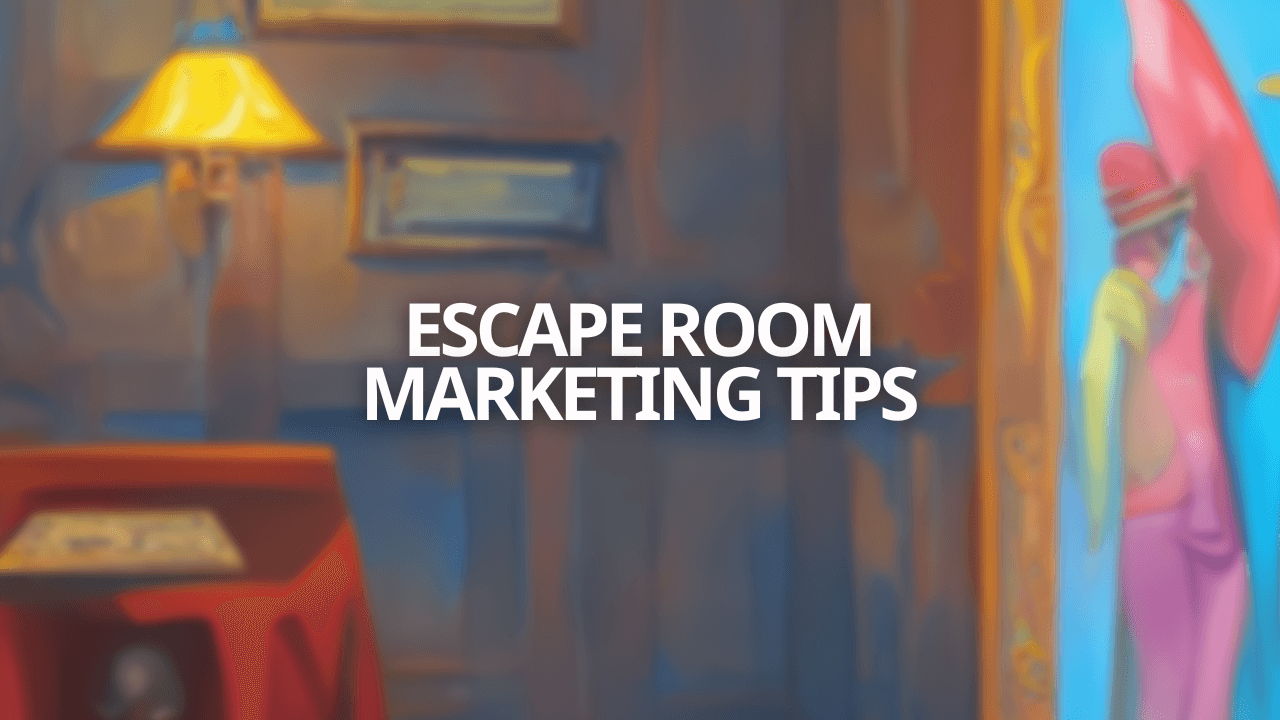
![4 Best Escape Room Booking Software Solutions [2024]](/_next/image?url=https%3A%2F%2Fcms.birchriverdg.com%2Fwp-content%2Fuploads%2F2022%2F12%2FEscape-Room-Booking-Systems-1.png&w=3840&q=75)
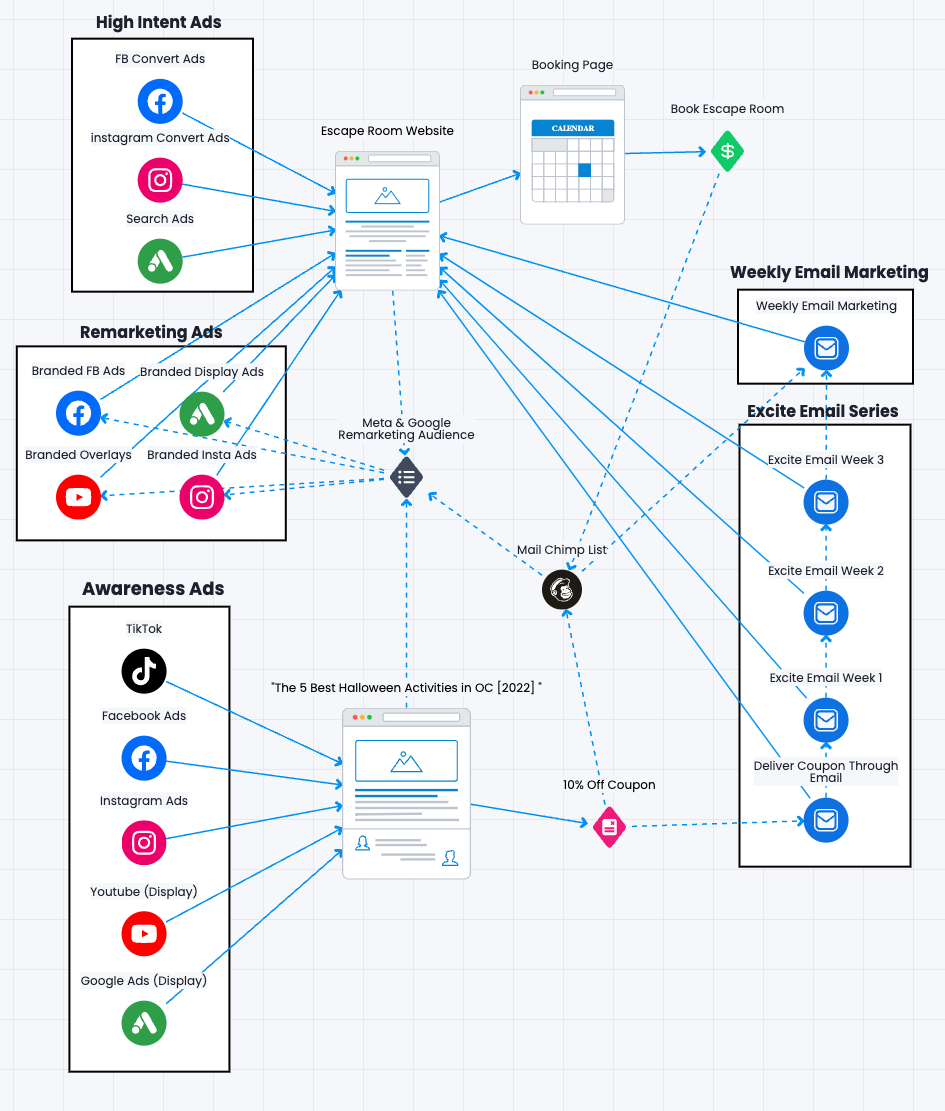


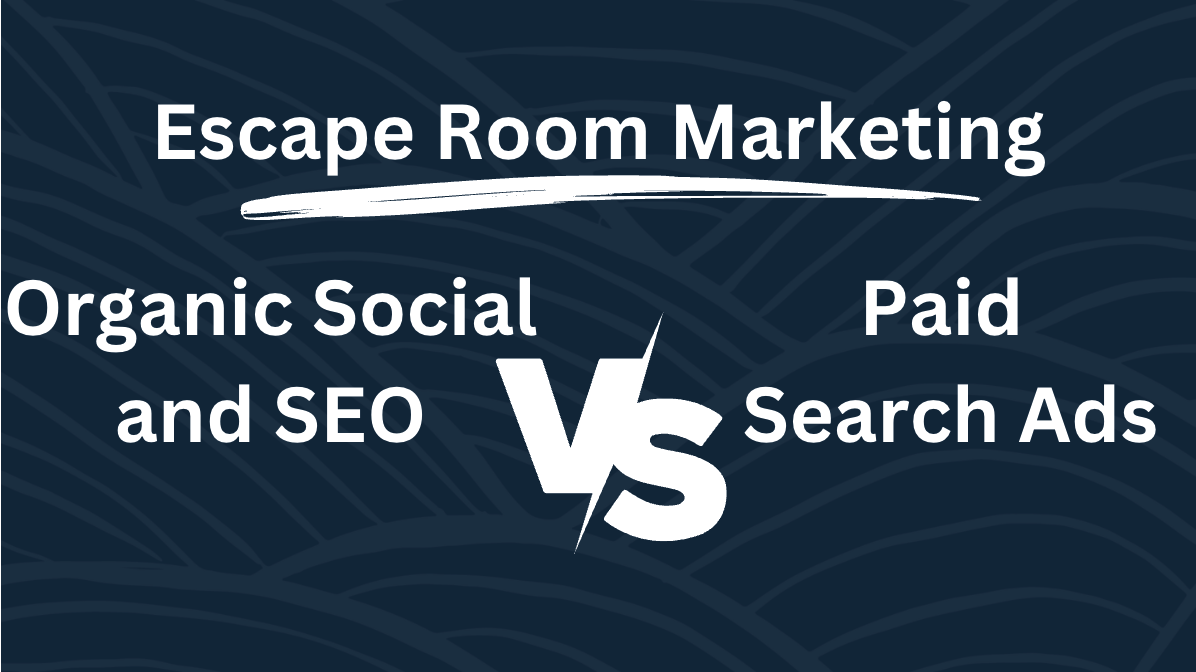

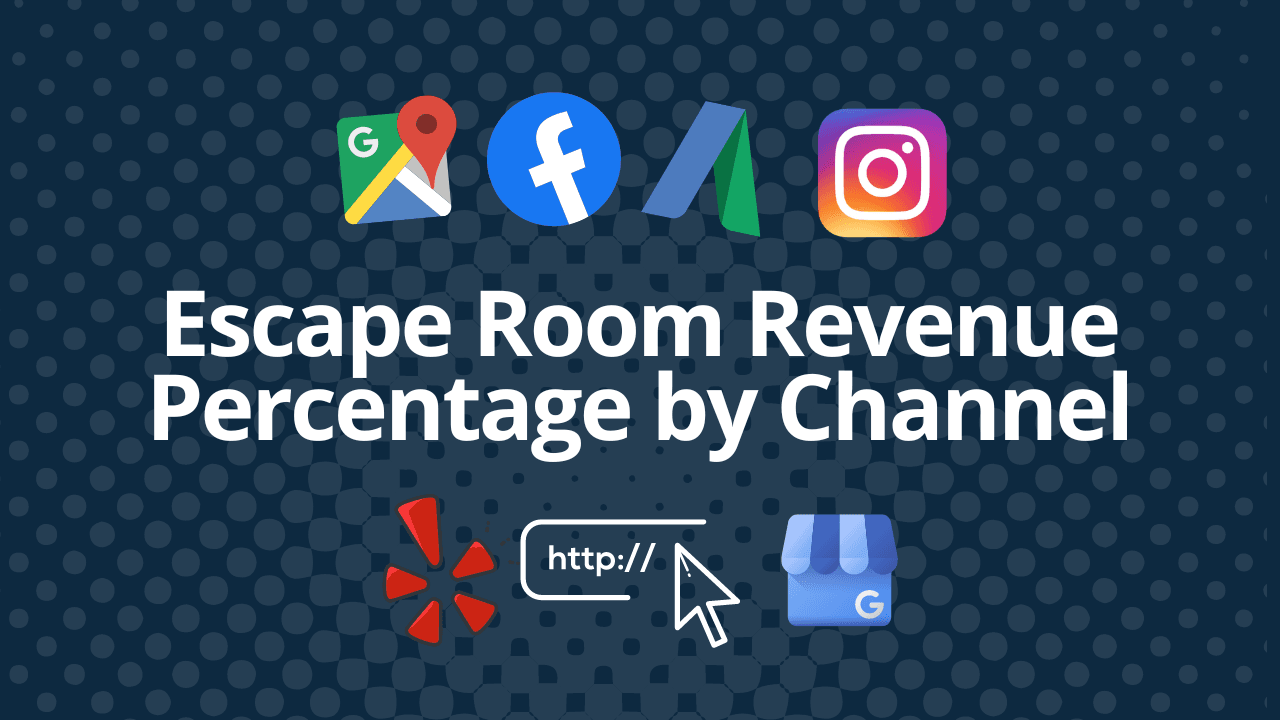
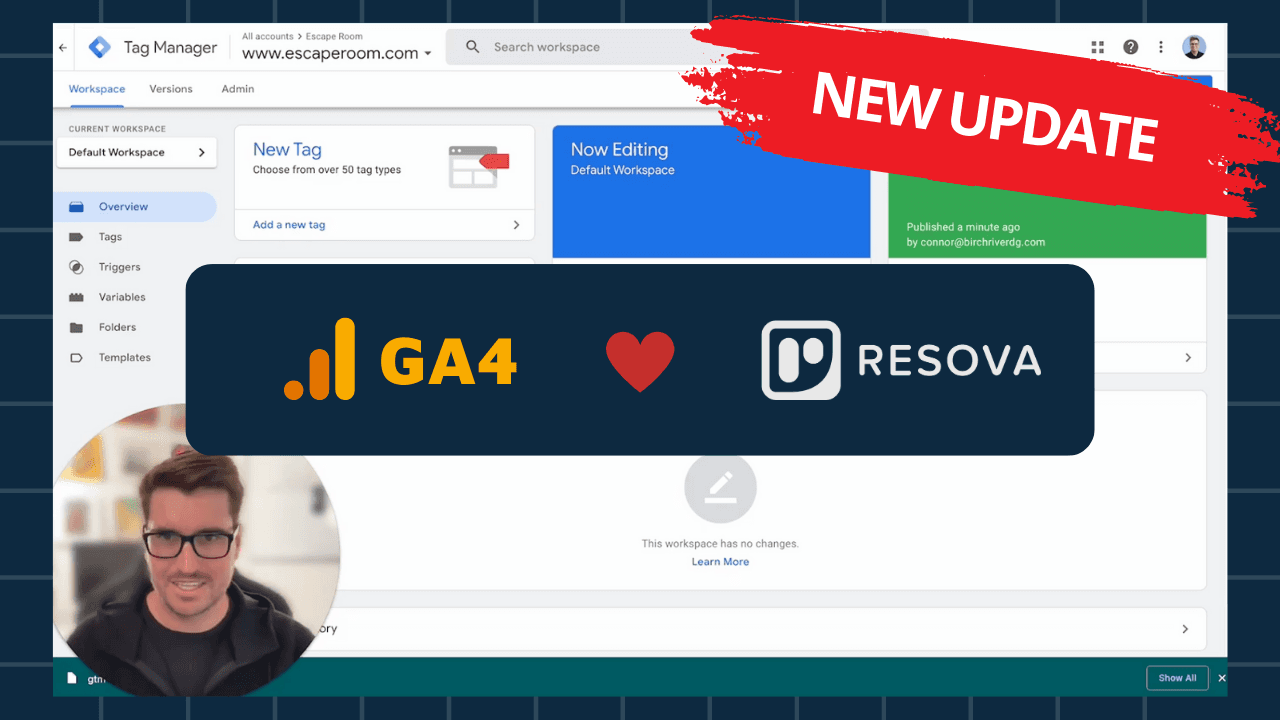
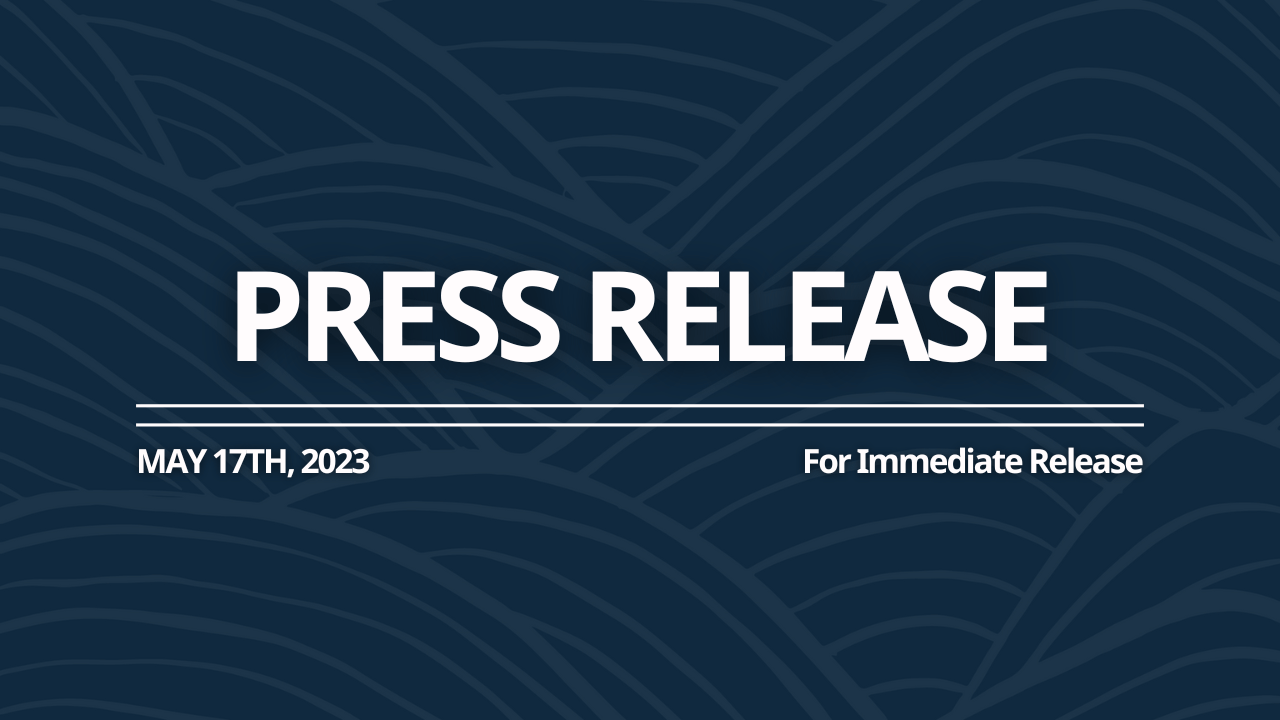
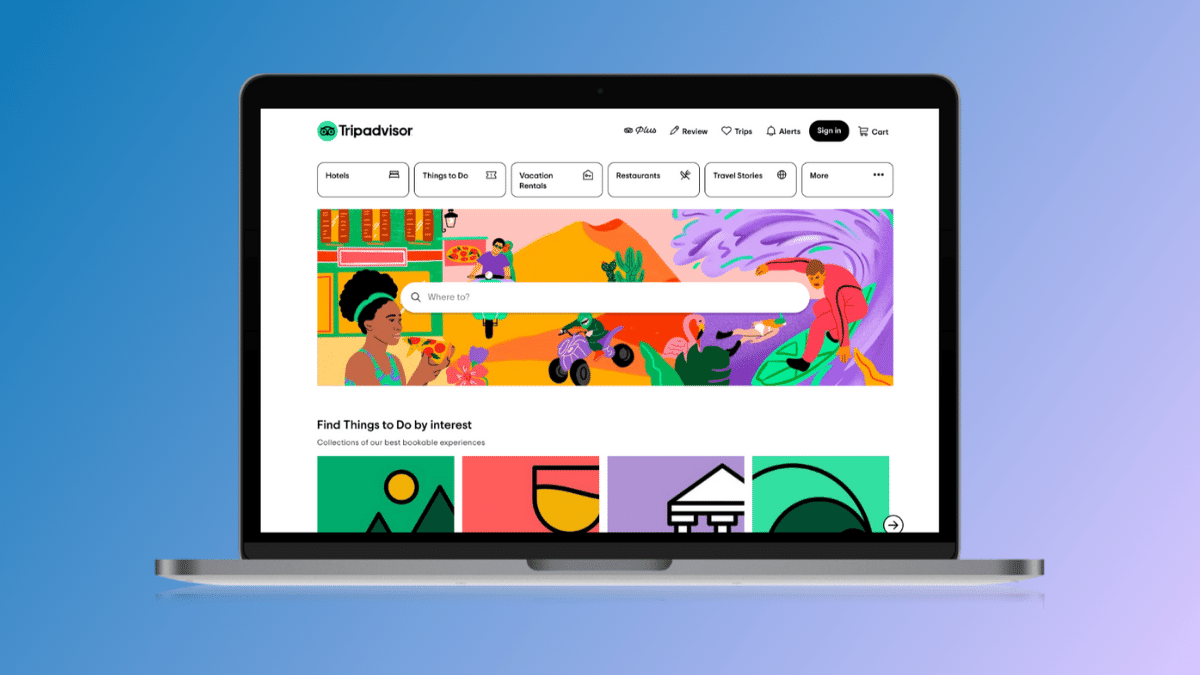
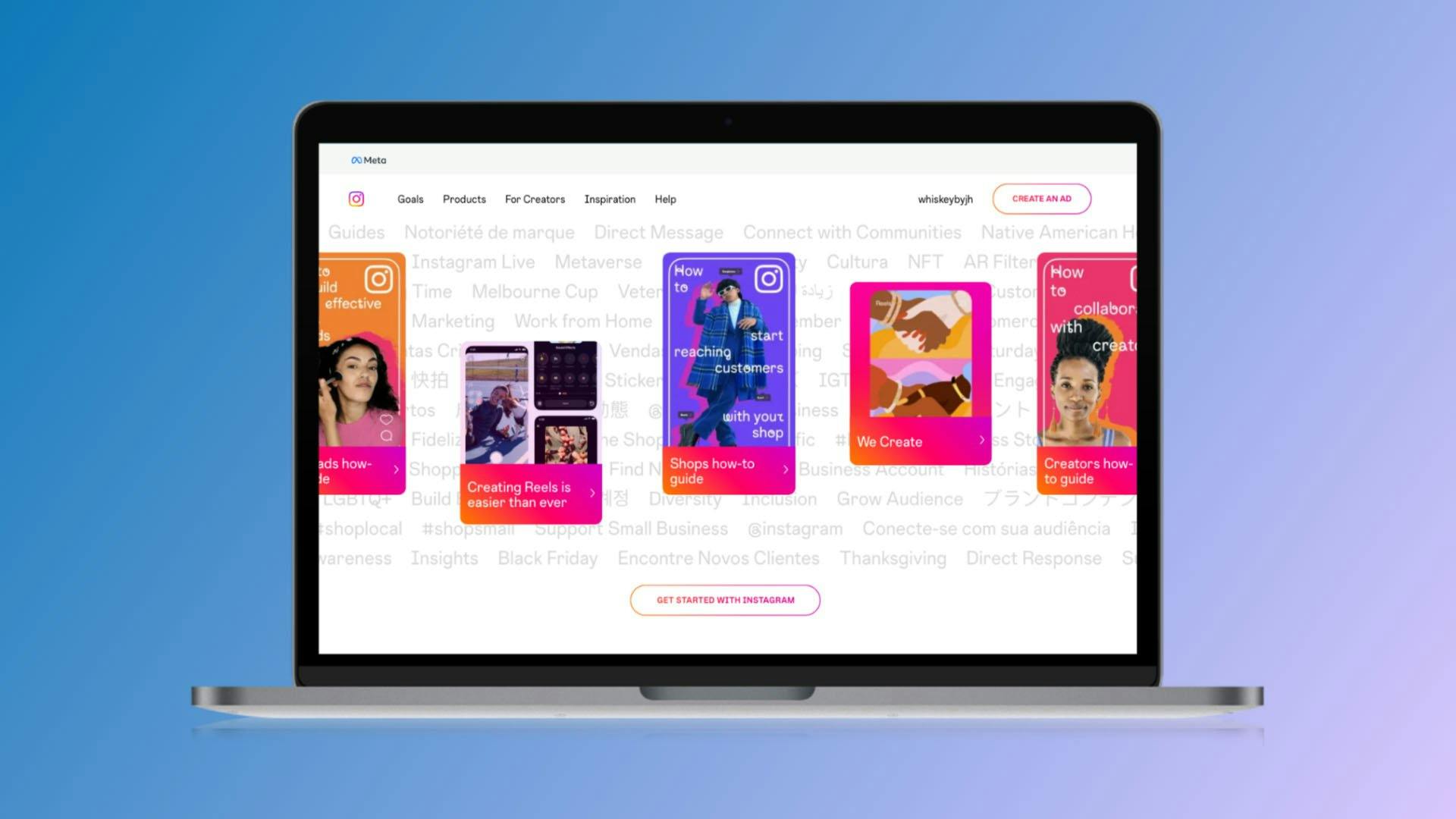

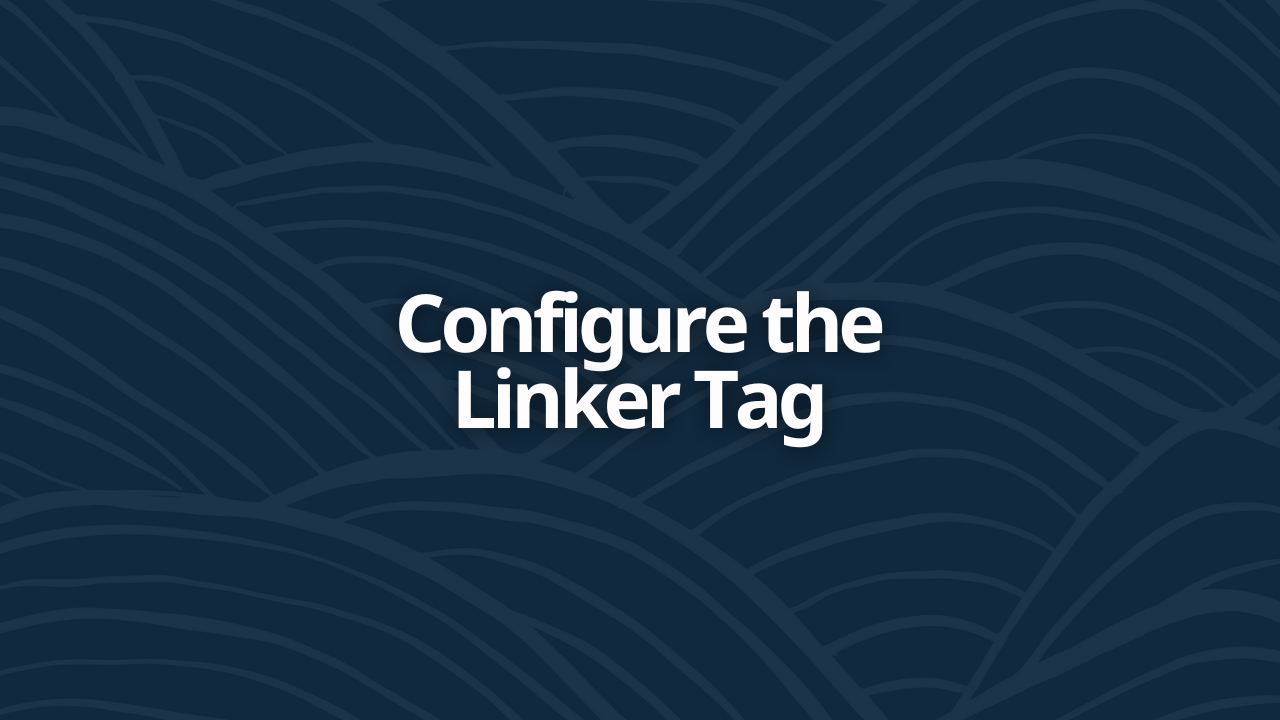
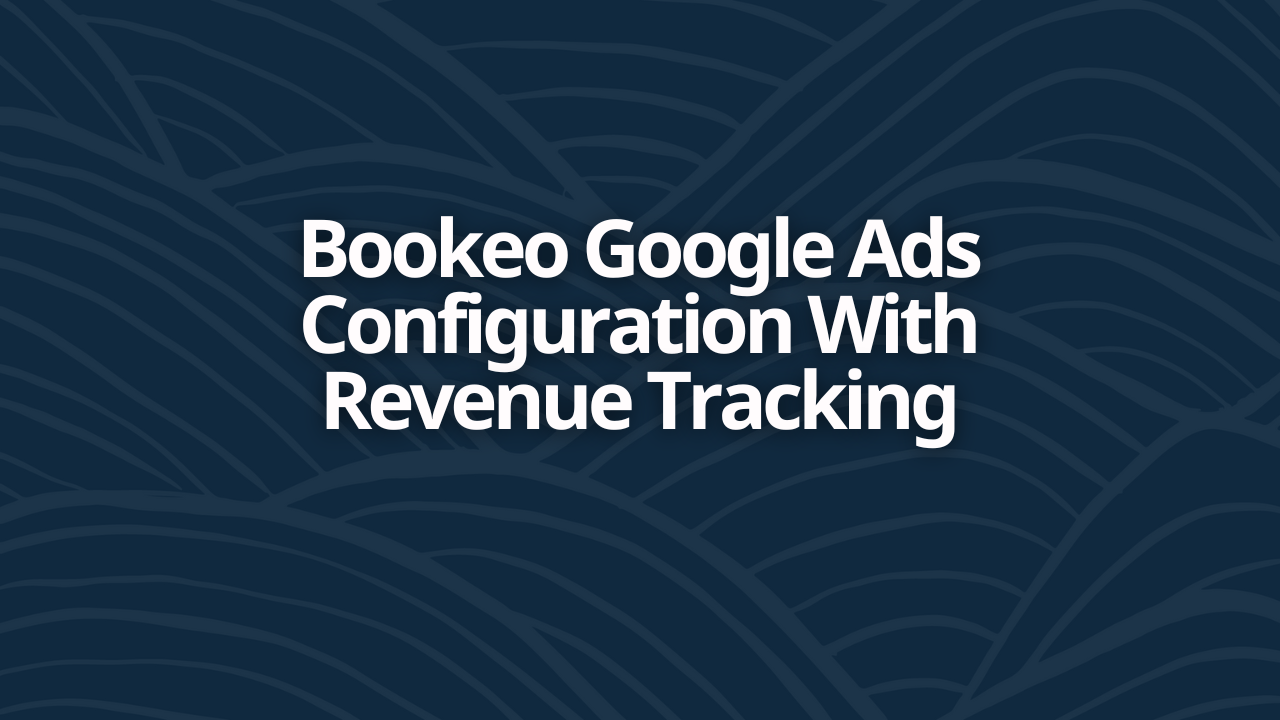
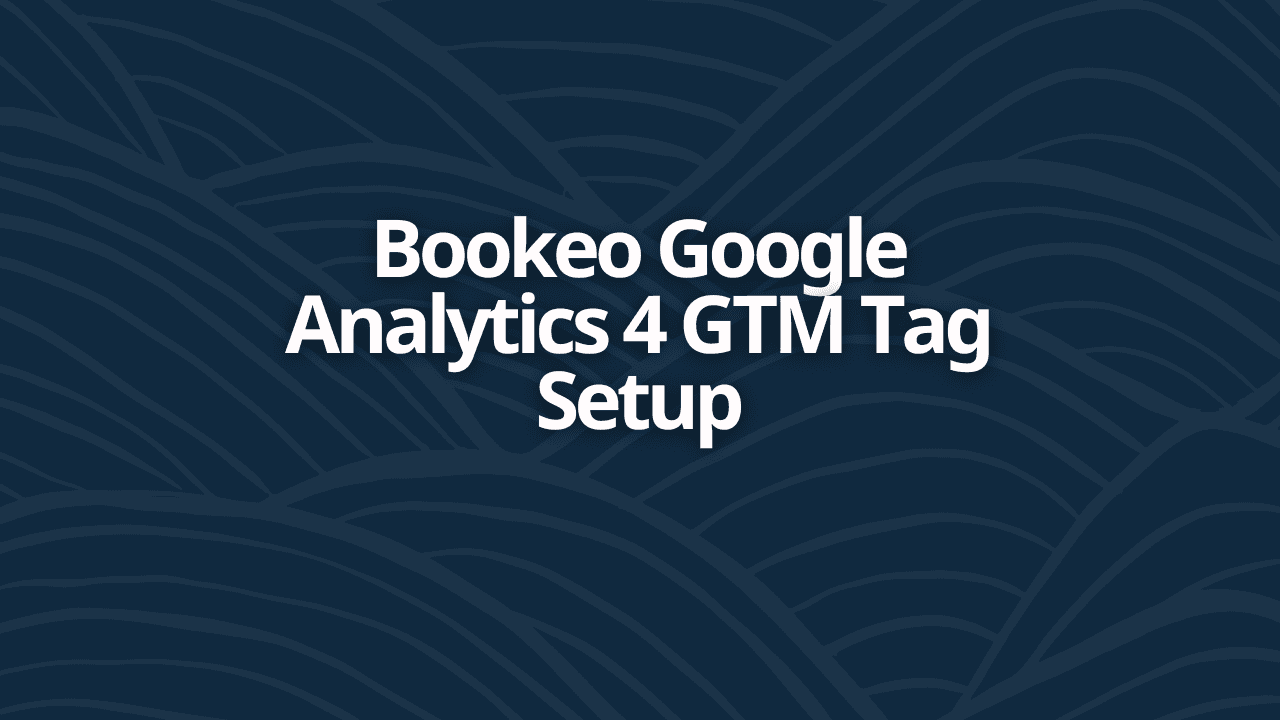
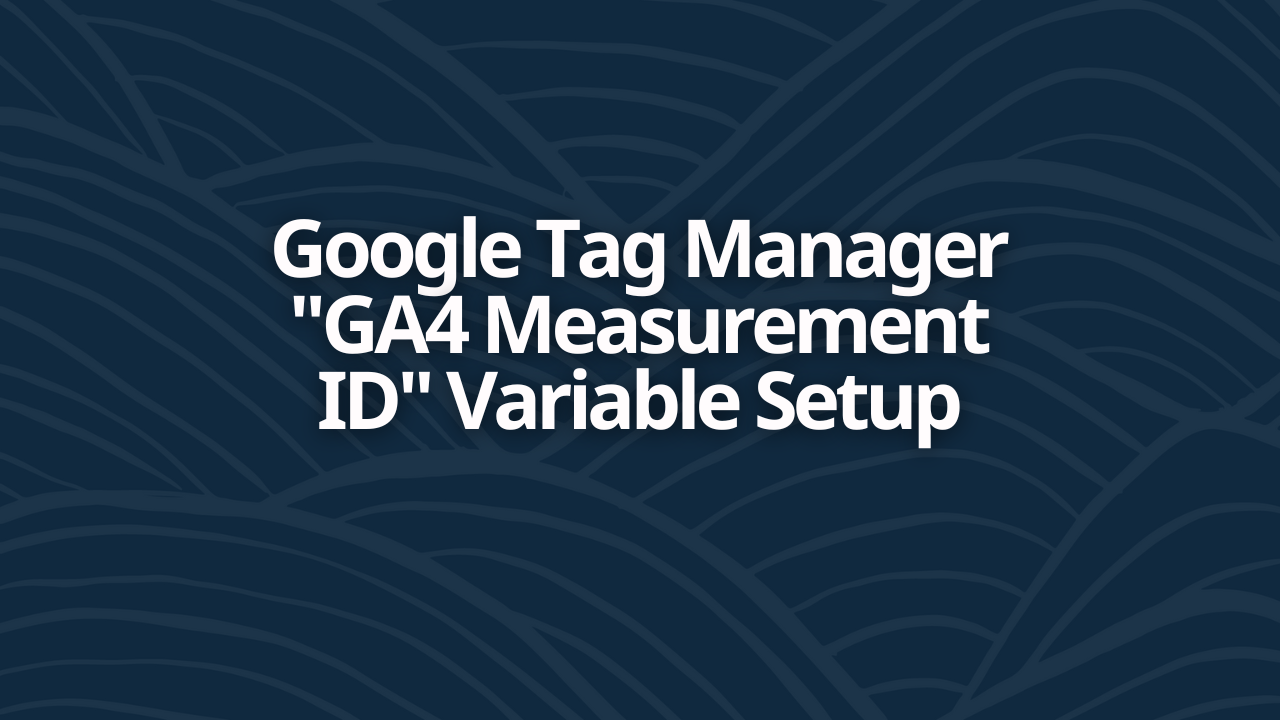
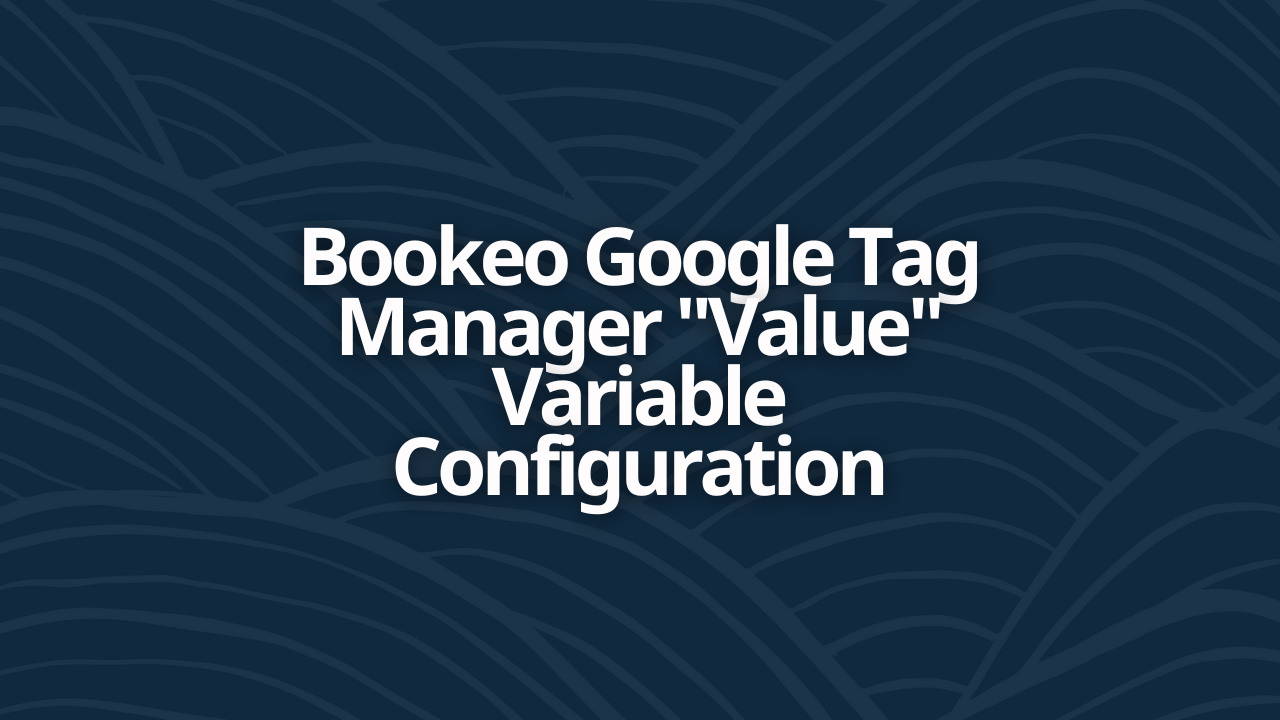
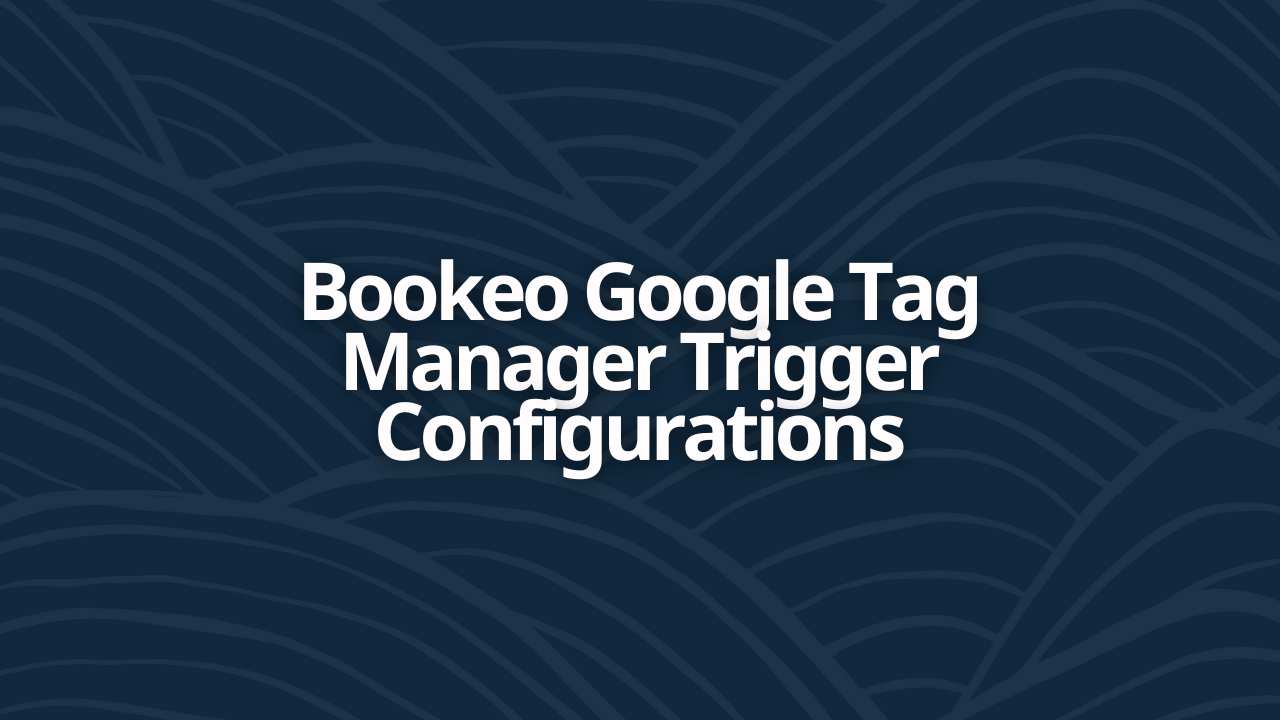
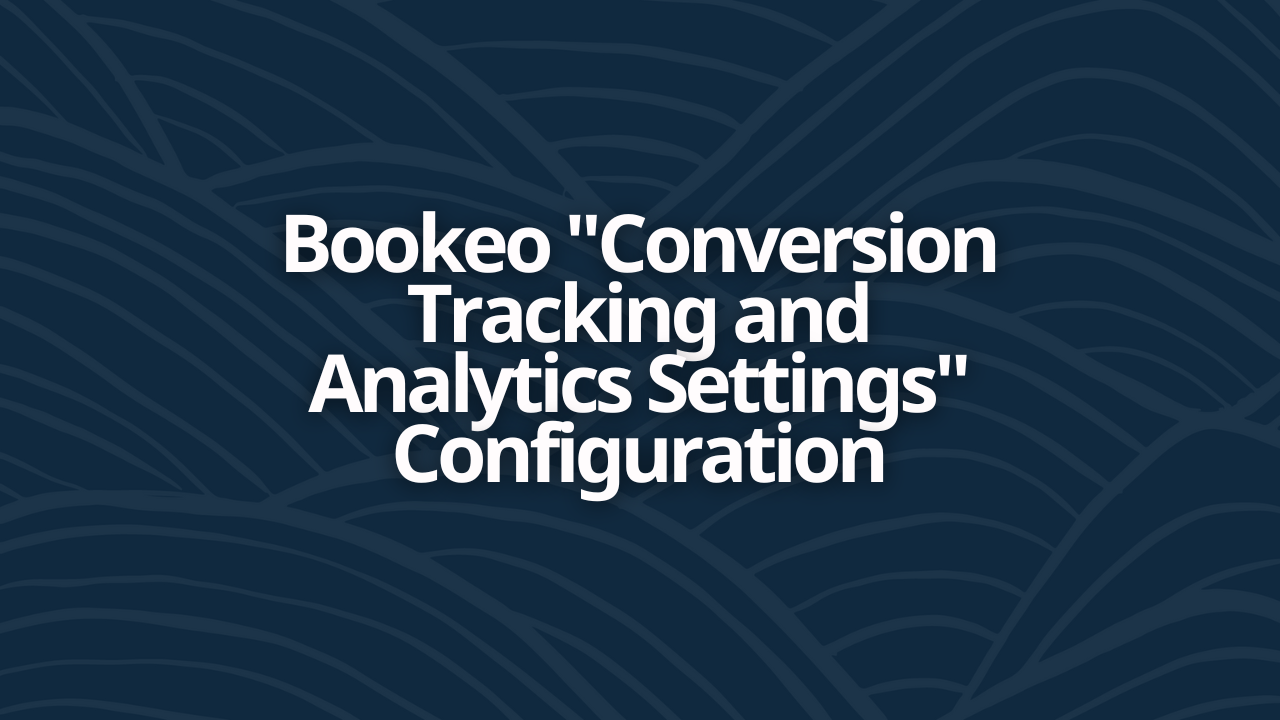
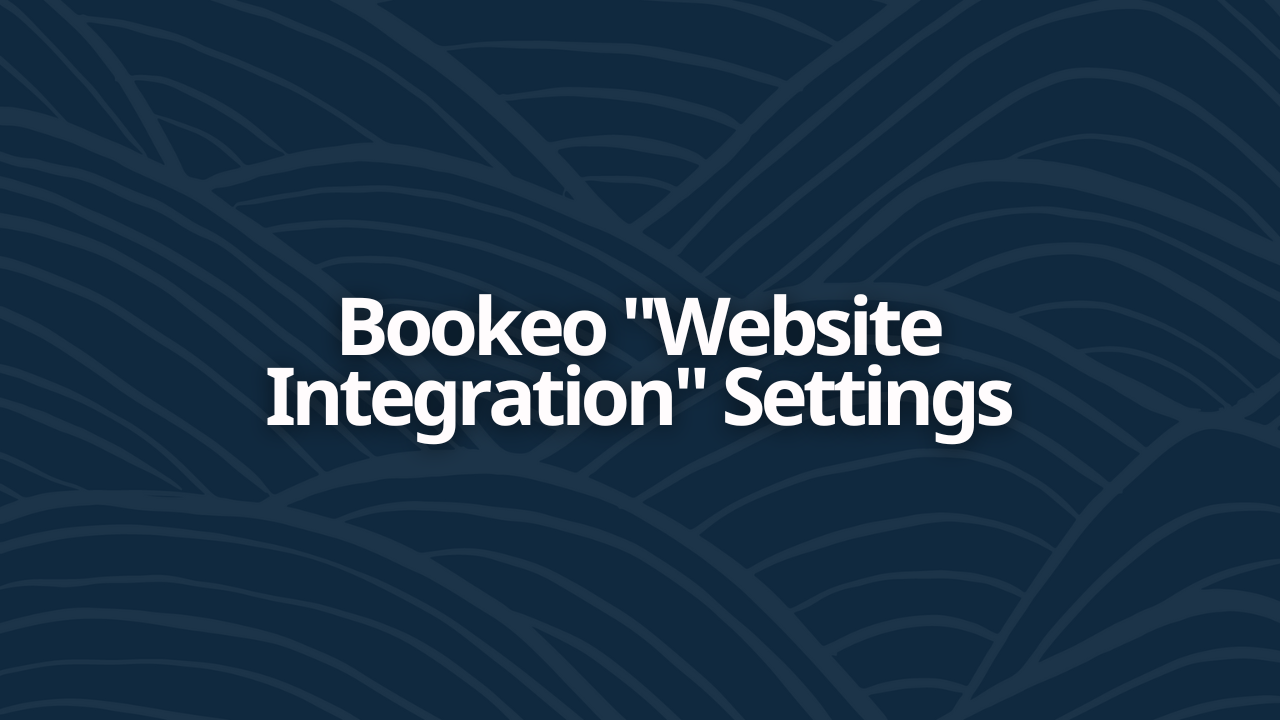

![[2023] Bookeo Escape Room Integration Guide](/_next/image?url=https%3A%2F%2Fcms.birchriverdg.com%2Fwp-content%2Fuploads%2F2023%2F03%2FBookeo-Series.png&w=3840&q=75)
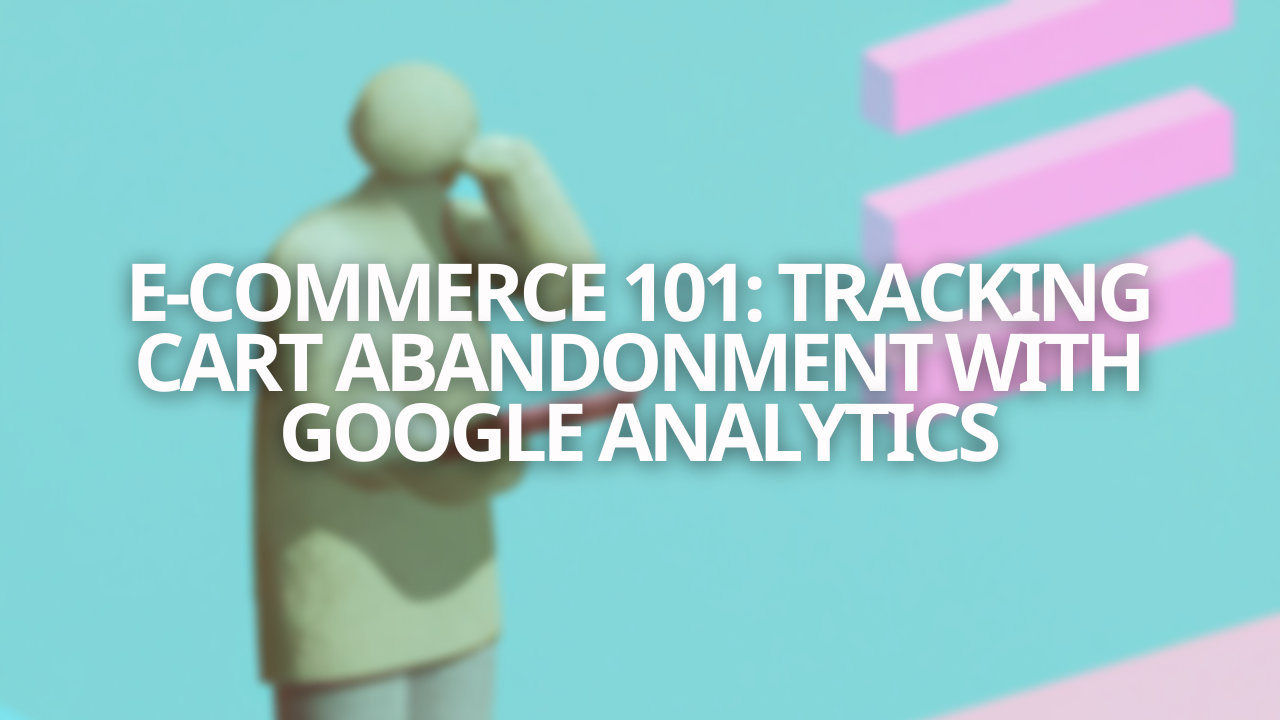

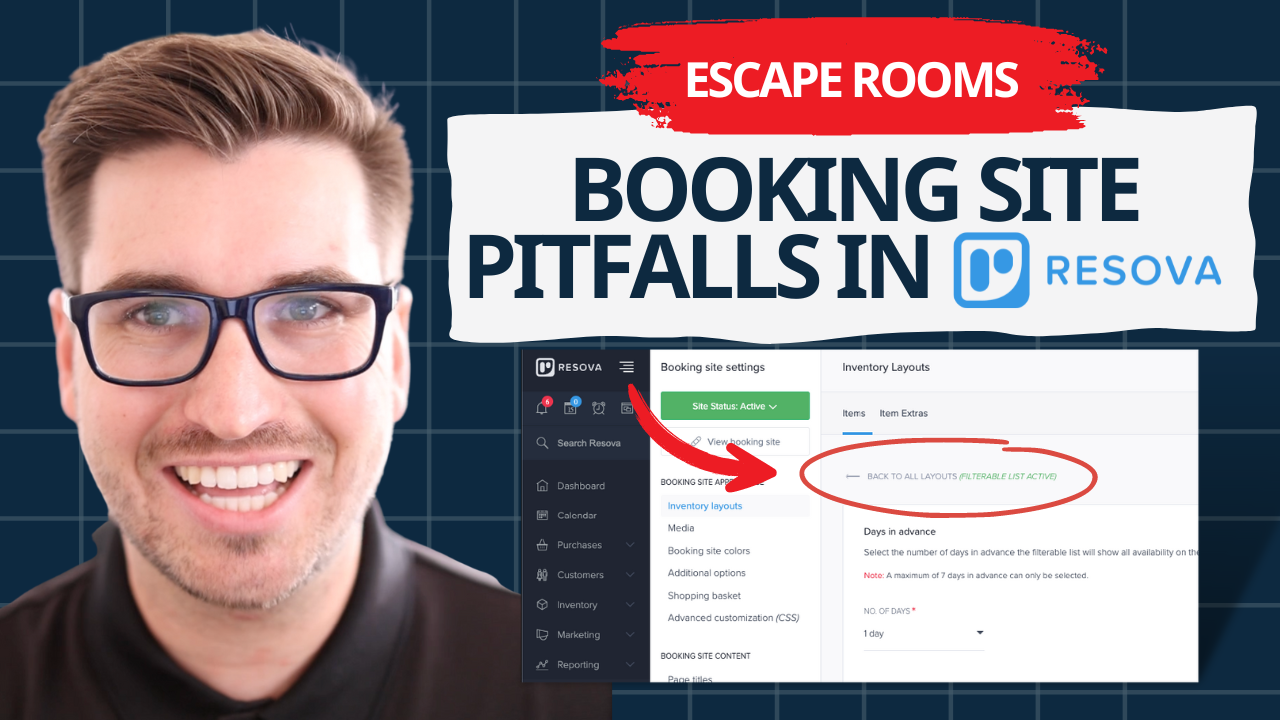

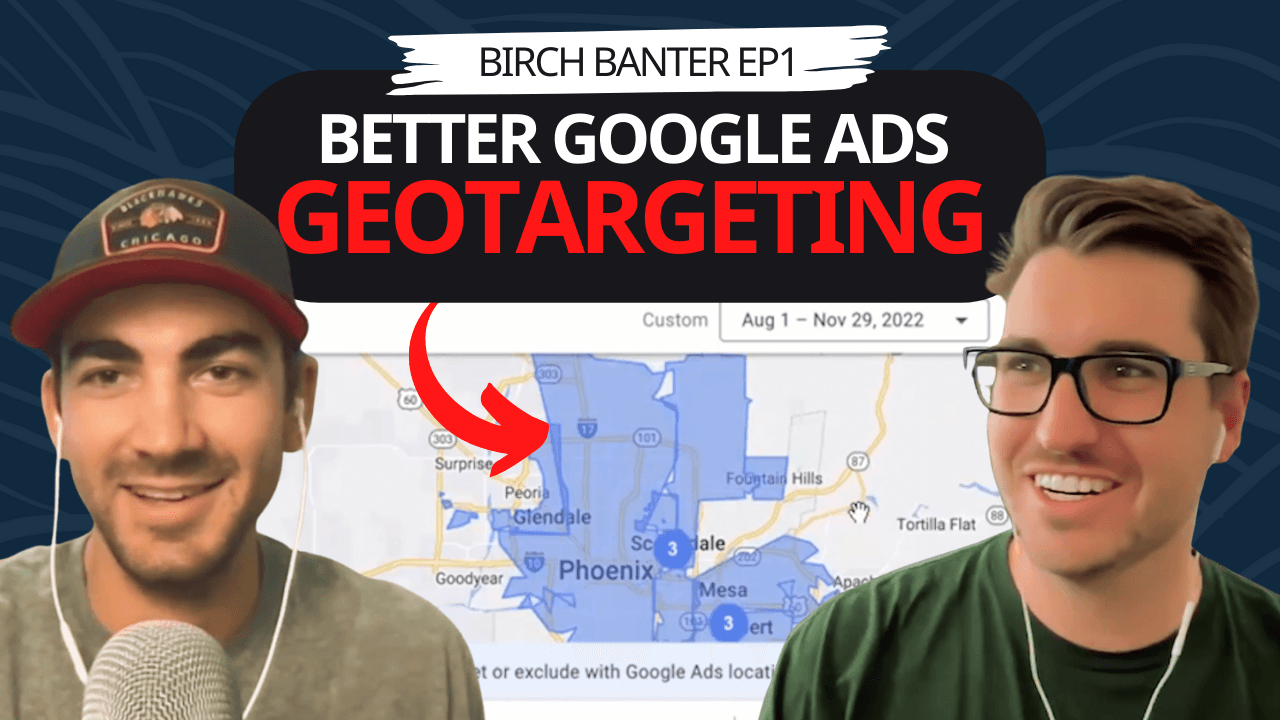
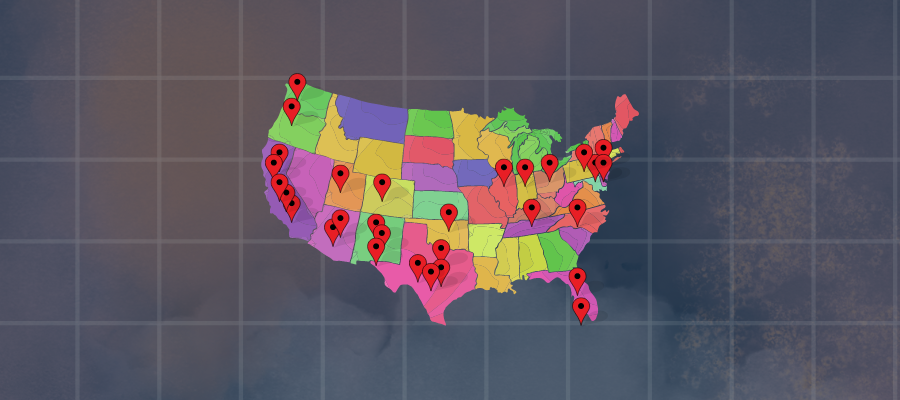
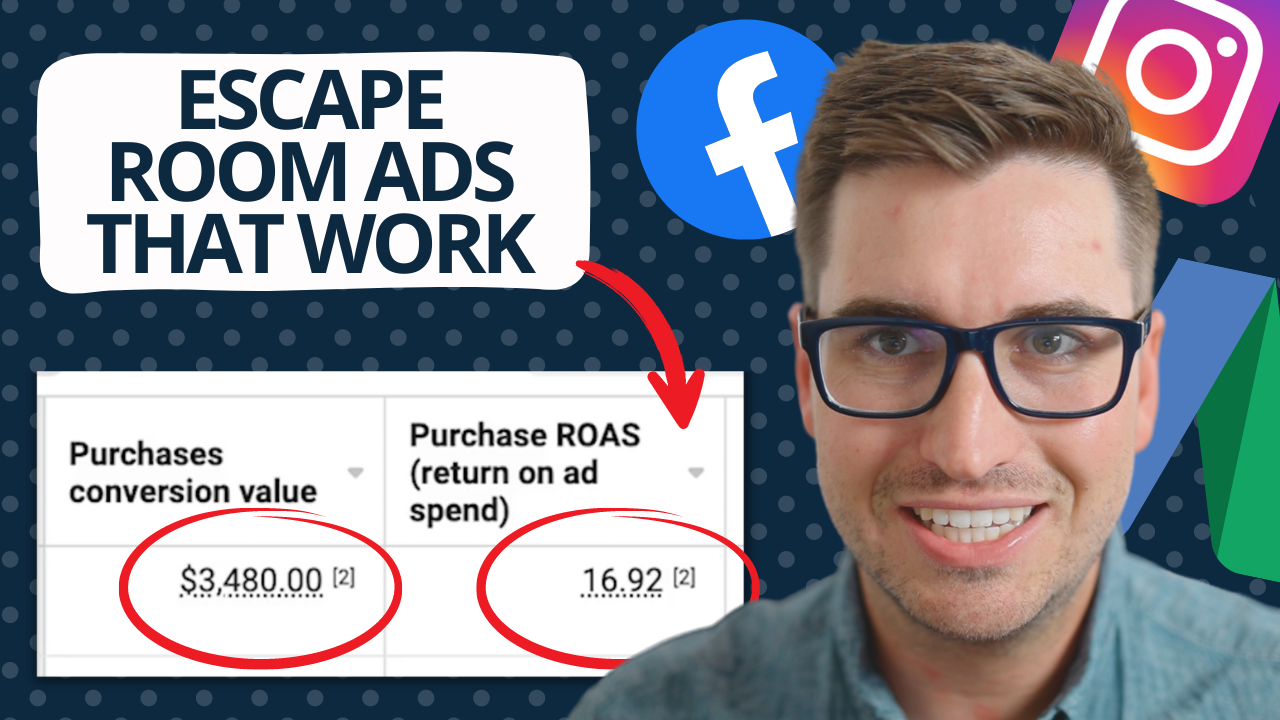

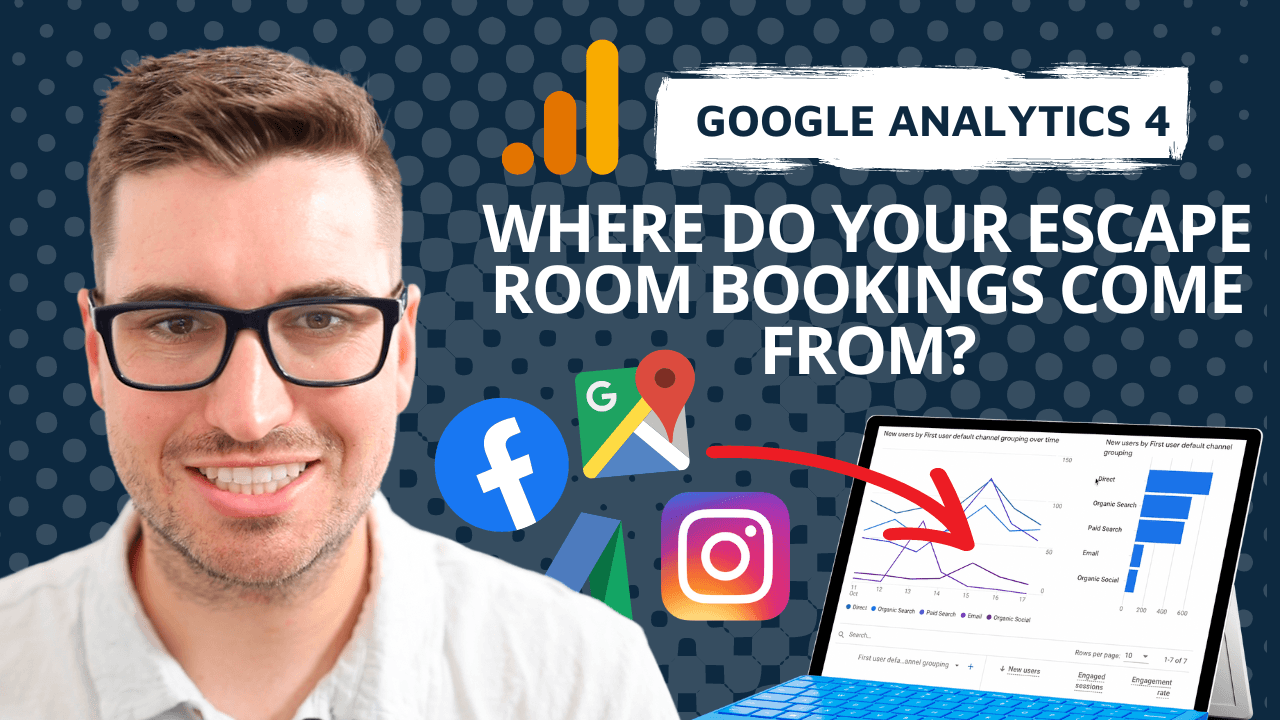
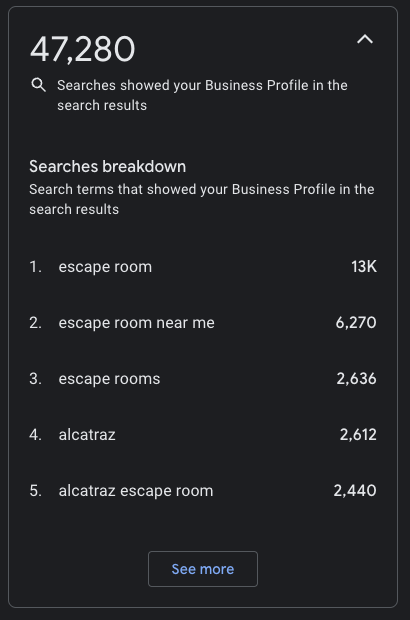

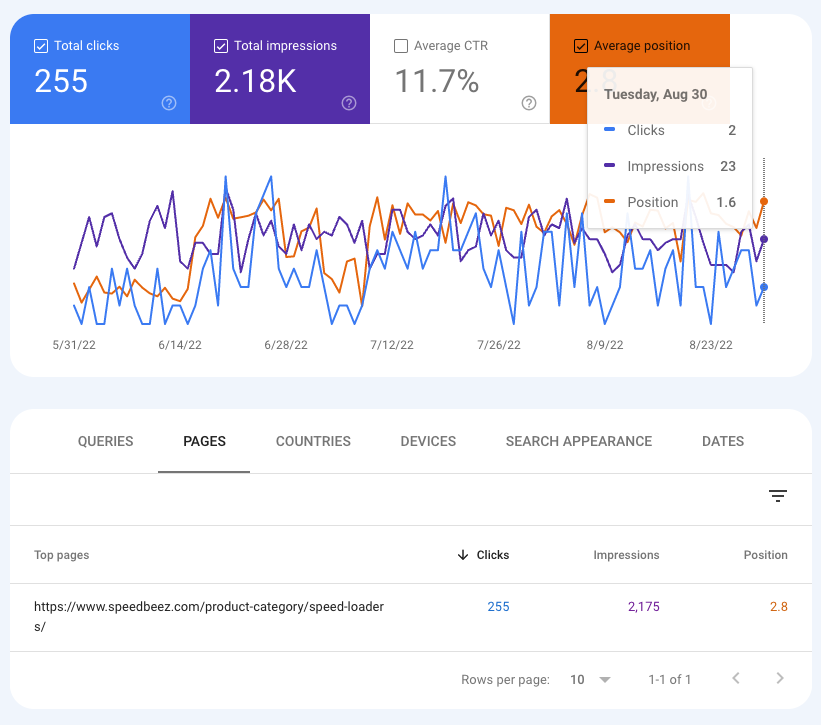
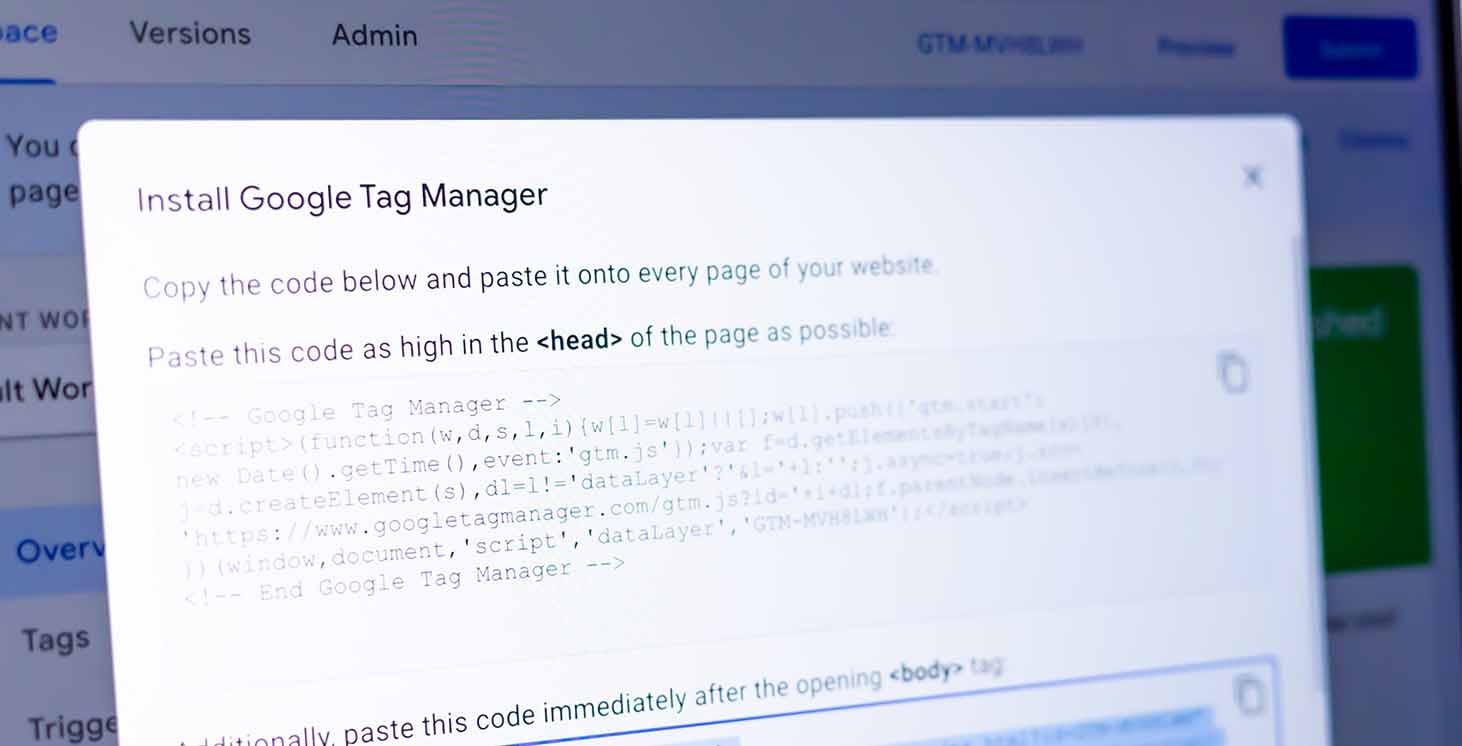

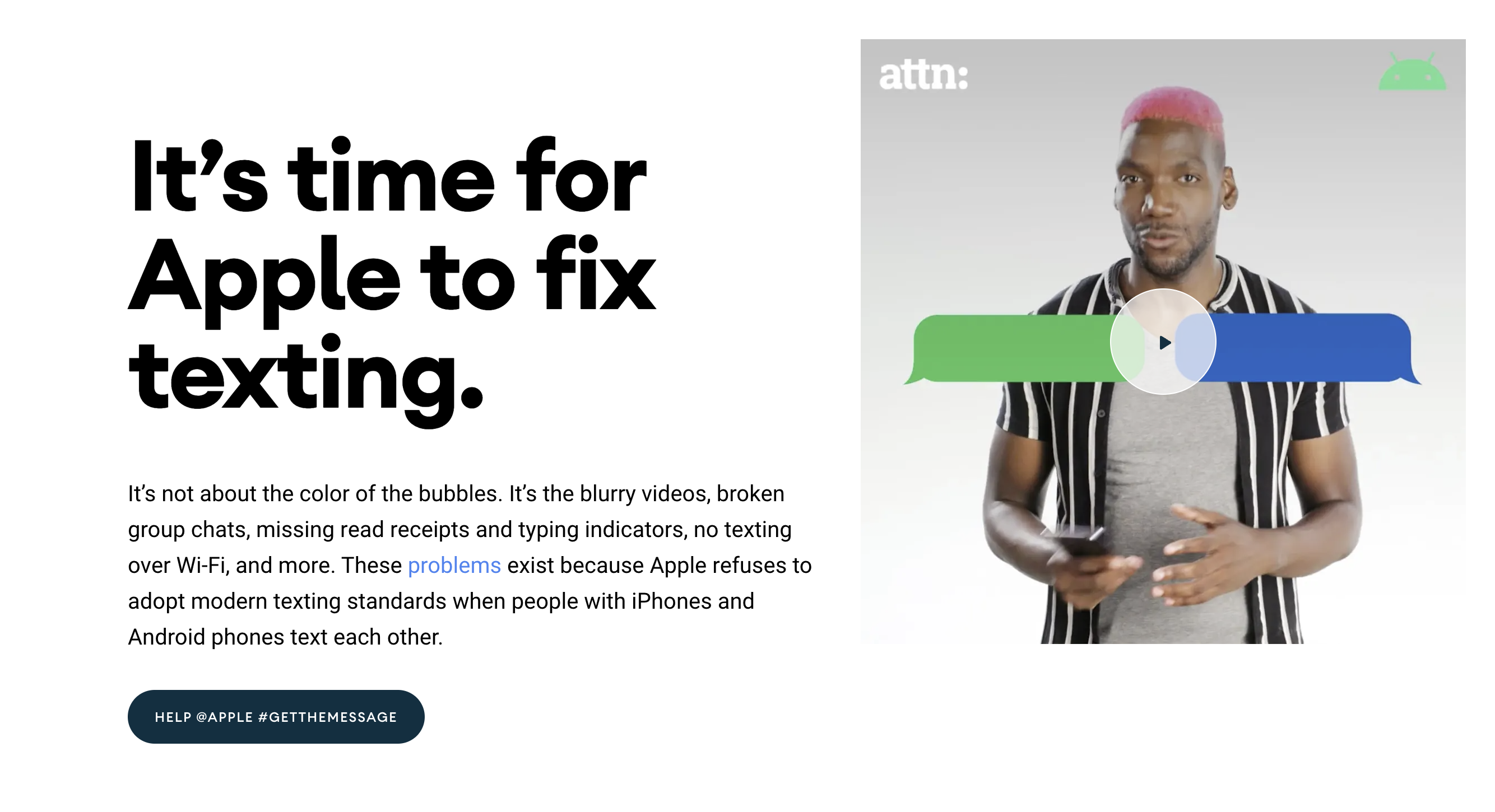
![[2022] The Ultimate Escape Room Marketing Plan](/_next/image?url=https%3A%2F%2Fcms.birchriverdg.com%2Fwp-content%2Fuploads%2F2022%2F08%2FLoyalty-Loop%402x.png&w=3840&q=75)